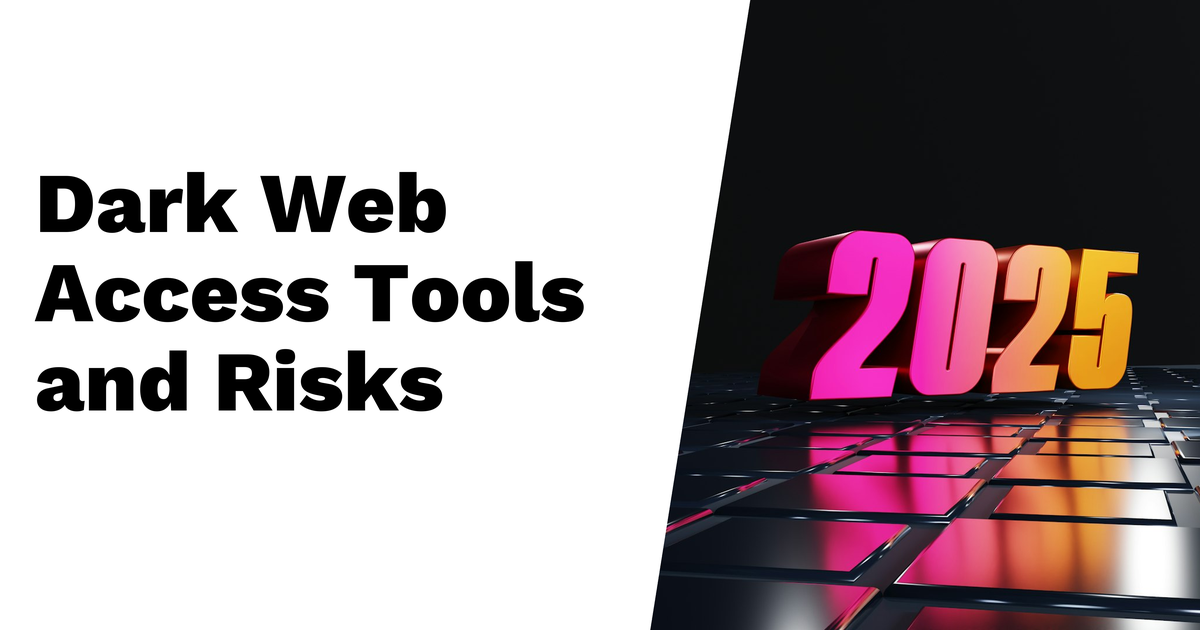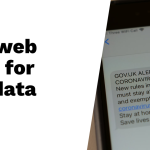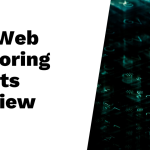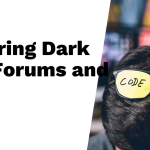Accessing the Dark Web in 2025 is a journey filled with both potential and peril. Defined as a mere fraction of the internet, it houses numerous activities, from legitimate communications by journalists to illegal marketplaces selling drugs and stolen data. Tools like Tor and various search engines help users navigate this complex space while remaining anonymous. However, one must proceed with caution because legal risks loom large; law enforcement closely monitors illicit actions. Additionally, users face cybersecurity threats from malware and scams that can easily compromise personal information. Understanding these factors is crucial for anyone considering delving into this shadowy corner of the internet.
Table of Contents
- Understanding the Dark Web
- Reasons for Accessing the Dark Web
- Legal Risks of Dark Web Access
- Cybersecurity Threats on the Dark Web
- Data Harvesting Risks in the Dark Web
- Safe Practices for Dark Web Users
- Future of Dark Web Access in 2025
- Frequently Asked Questions
Understanding the Dark Web
The Dark Web is a hidden segment of the internet that traditional search engines cannot index, making it less accessible for most users. It operates through specialized overlay networks, the most notable being Tor, which facilitates anonymous communication. This anonymity attracts a diverse range of users, from activists seeking to avoid censorship to criminals engaging in illegal activities. Dark Web content varies widely, encompassing forums, blogs, and marketplaces, many of which have URLs ending in .onion. These sites can only be accessed using specific browsers designed for this purpose. Understanding the Dark Web requires distinguishing it from the Surface Web and Deep Web: the Surface Web is what most people use daily, while the Deep Web includes unindexed content like databases and private networks. While the Dark Web has a notorious reputation, it also hosts communities dedicated to privacy and freedom of expression. Research shows that a significant portion of the Dark Web serves legitimate purposes, such as providing information on human rights abuses. Many users turn to it to bypass censorship and access vital information denied to them in their regions. As technology continues to evolve, the Dark Web may increasingly blend with mainstream internet services, challenging our existing perceptions.
Reasons for Accessing the Dark Web
Many individuals turn to the Dark Web for privacy and anonymity, allowing them to communicate without fear of being monitored. This is especially important for activists and journalists, who often rely on it to share sensitive information safely, particularly in countries where freedom of speech is limited. The Dark Web also serves as a platform for political dissent, giving a voice to those who might otherwise be silenced by authoritarian regimes. Additionally, researchers utilize the Dark Web to study cyber threats and gather intelligence on criminal activities, helping to understand and combat these issues. Some users seek out unique products or services unavailable on the Surface Web, while anonymous forums provide a space for discussing taboo topics without judgment. This environment can be particularly appealing to those looking to escape governmental or corporate surveillance, as well as privacy-conscious individuals wanting to protect their personal data from aggressive data mining practices. Furthermore, the allure of exploring underground cultures can draw in the curious, making the Dark Web a multifaceted space for both legitimate and illicit uses.
Legal Risks of Dark Web Access
Accessing the Dark Web is not illegal by itself, but the line blurs when users engage in illicit activities. Many individuals might unknowingly stumble into illegal transactions, which can result in severe legal consequences. Law enforcement agencies are actively monitoring the Dark Web, looking for illegal activities, which raises the stakes for everyone involved. The legal landscape is also changing, with some jurisdictions tightening regulations related to the Dark Web. Even unintentional access or distribution of illegal content can land users in hot water, as ignorance is rarely accepted as a defense in court. Participating in forums or marketplaces can attract legal scrutiny, especially if discussions hint at illegal actions. Legal repercussions can differ vastly between countries, adding complexity for international users. There are numerous case studies illustrating how undercover operations have led to arrests within Dark Web marketplaces. Given these factors, users must be fully aware of the laws governing their actions and proceed with caution to avoid potential legal troubles.
Cybersecurity Threats on the Dark Web
The Dark Web presents a unique set of cybersecurity threats that can trap the unwary. It is a breeding ground for malware and ransomware, where countless sites host malicious software designed to exploit vulnerabilities. Users venturing into this hidden part of the internet often face phishing attempts, which can lead to significant data theft or financial losses. Cybercriminals capitalize on the anonymity offered by the Dark Web, selling hacking tools and exploit kits, thereby expanding the threat landscape.
Forums dedicated to illicit activities thrive on the Dark Web, facilitating the exchange of stolen data, including credit card information and personal identities. This exchange not only poses risks to those targeted but also fuels a cycle of crime that can impact users far beyond the Dark Web itself. Given the lack of basic security measures on many sites, users are often exposed to potential attacks, making caution essential.
Ransomware attacks frequently originate from the Dark Web, targeting both individuals and organizations. Security experts continually warn about the dangers of trusting unknown sources in this realm, as scams run rampant. Engaging with the Dark Web carries the risk of data breaches, especially if users share any personal information. Adopting regular updates and robust security practices becomes crucial for anyone daring enough to navigate this hidden digital landscape.
Data Harvesting Risks in the Dark Web
The Dark Web is a wild frontier where many services operate without regulation, making them prime targets for data harvesting by malicious actors. Users often unwittingly give away personal information, which can lead to identity theft. For instance, a seemingly harmless chat room could be a front for cybercriminals looking to extract sensitive data. Some apps and platforms on the Dark Web may include hidden tracking mechanisms that collect user data without consent, further complicating privacy issues.
Cybercriminals frequently utilize social engineering tactics, skillfully persuading users to disclose sensitive information. The lack of oversight in this environment means that users have very few options for recourse if their data is misused or stolen. Additionally, data circulating on the Dark Web can be bought and sold, increasing the chances of personal information being exposed to the wrong hands.
Users should approach sharing any information with extreme caution, even seemingly innocuous personal anecdotes, as these can lead to identification. Security vulnerabilities in Dark Web applications can also be exploited to harvest user data, making it imperative for users to remain vigilant. Organizations monitoring the Dark Web might find their own data being sold or leaked, highlighting the risks that businesses face as well. Adopting stringent privacy measures is essential for anyone looking to navigate the Dark Web safely.
Safe Practices for Dark Web Users
When exploring the Dark Web, safety should always be your top priority. Start by using a VPN to encrypt your internet connection. This step is crucial, as it hides your IP address and makes it harder for anyone to track your online activities. Keep all your software and tools updated to guard against vulnerabilities, as outdated programs can be a gateway for cybercriminals. It’s essential to maintain your anonymity; avoid sharing personal information, even in seemingly harmless forums or chats. Remember, anything you share could be used against you.
Downloading files from untrusted sources is a major risk, as these files can be laced with malware that compromises your device and data. Always approach offers that seem too good to be true with skepticism, as scams abound in this unregulated space. Regularly check for IP leaks using services like ipleak.net to ensure your identity remains hidden while you browse. For added security, consider using disposable email addresses when registering for Dark Web services, which keeps your real email private.
Educate yourself about the specific risks of the sites you plan to visit, as different platforms may pose unique challenges. Use strong, unique passwords for any accounts related to your Dark Web activities to prevent unauthorized access. Finally, have a plan in place for what to do if you encounter a security issue or legal trouble while browsing, as being prepared can help you navigate unexpected situations.
- Always use a VPN to encrypt your internet connection before accessing the Dark Web.
- Keep your software and tools updated to protect against vulnerabilities and exploits.
- Avoid sharing personal information, even in forums or chats, to maintain anonymity.
- Do not download files from untrusted sources, as they may contain malware.
- Be skeptical of offers that seem too good to be true, as scams are rampant.
- Regularly check for IP leaks to ensure your identity remains hidden while browsing.
- Consider using disposable email addresses for registration on Dark Web services.
- Educate yourself about the specific risks associated with the sites you plan to visit.
- Use strong, unique passwords for accounts related to Dark Web activities.
- Have a plan for what to do if you encounter a security issue or legal trouble while browsing.
Future of Dark Web Access in 2025
The future of Dark Web access in 2025 is likely to be shaped by several key trends. As technology continues to advance, the Dark Web may become more integrated with mainstream services, making it less of a hidden realm and more of a tool for those seeking privacy. This could also lead to increased regulation, which may impact how users interact with the Dark Web and their ability to remain anonymous. Improved cybersecurity tools will likely make navigating this space safer, encouraging more users to explore its legitimate uses, like secure communications for journalists and whistleblowers.
Emerging technologies, such as blockchain, could enhance security and anonymity, providing innovative ways for users to protect their identities. However, as these tools evolve, so too will the capabilities of law enforcement agencies, who may develop more sophisticated methods to monitor activities on the Dark Web. This ongoing battle between privacy advocates and regulatory bodies will significantly influence the landscape of the Dark Web.
As digital literacy improves, a growing number of users may learn to navigate the Dark Web safely and responsibly. With increased awareness of privacy concerns, more individuals might turn to the Dark Web as a solution for secure communication. Over time, the perception of the Dark Web could shift as legitimate use cases emerge, transforming it from a place largely associated with illicit activities into a resource for privacy and information.
Frequently Asked Questions
What is the dark web and how is it different from the regular internet?
The dark web is a part of the internet that is not indexed by search engines. It’s different from the regular web where you find websites easily, and it requires special tools to access.
What tools do I need to access the dark web safely?
To access the dark web safely, you typically need a special browser like Tor, which helps protect your identity, along with using a good VPN for extra privacy.
What are the main risks of exploring the dark web?
Exploring the dark web can expose you to risks like encountering illegal content, scams, or viruses, and it can also put your personal information in danger.
Can I get in trouble for visiting the dark web?
Just visiting the dark web is not illegal, but if you engage in illegal activities while there, you could face legal consequences. It’s important to know the laws in your area.
Is it safe to share personal information on the dark web?
No, it is not safe to share personal information on the dark web. It can be easily intercepted or misused by malicious actors who operate in that space.
TL;DR The Dark Web is a small part of the internet, primarily accessed through tools like Tor for privacy. People may venture there for legitimate purposes, like safe communication for journalists, or for illicit activities like buying illegal goods. Accessing the Dark Web carries legal risks, cybersecurity threats, and data harvesting dangers. Users should implement safe practices, such as using VPNs and avoiding illicit actions. Staying informed is crucial for safe navigation in this risky environment.





